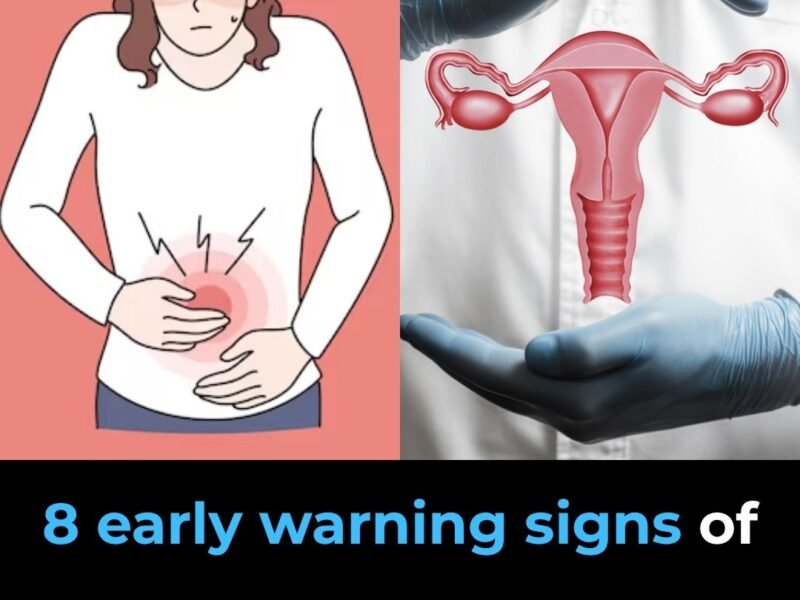Your body has a unique way of signaling when something isn’t quite right. Often, we dismiss minor symptoms as everyday discomforts, but they could be early warning signs of underlying health issues. Paying attention to these signals and addressing them promptly can help prevent potential health complications.
In this article, we’ll explore ten common warning signs your body may be giving you and what they could mean.
1. Persistent Fatigue and Low Energy
Feeling tired after a long day is normal, but if you experience constant fatigue despite getting enough rest, it could indicate an underlying health issue. Chronic fatigue might be linked to conditions such as:
- Thyroid Disorders: An underactive or overactive thyroid can affect energy levels.
- Anemia: Low iron levels can lead to decreased oxygen circulation in the body.
- Diabetes: Fluctuating blood sugar levels can cause extreme tiredness.
What to do: If you feel persistently exhausted, consider seeing a doctor for blood tests to rule out nutritional deficiencies or hormonal imbalances.
2. Unexplained Weight Changes
If you’re experiencing sudden weight loss or gain without changes to your diet or exercise routine, it could be a sign of an underlying health issue, such as:
- Diabetes: Uncontrolled blood sugar levels can lead to rapid weight loss.
- Hormonal Imbalances: Conditions like hypothyroidism can cause weight gain.
- Digestive Disorders: Issues such as celiac disease or inflammatory bowel disease can affect nutrient absorption.
What to do: Keep track of any unexpected weight changes and consult a healthcare professional if they persist.
3. Frequent Headaches
Occasional headaches are common, but frequent or severe headaches could indicate underlying concerns, including:
- Dehydration: Lack of sufficient water intake can trigger headaches.
- Vision Problems: Straining your eyes, especially in front of screens, can lead to persistent headaches.
- High Blood Pressure: Hypertension can manifest as headaches in some individuals.
What to do: Stay hydrated, take regular breaks from screens, and monitor your blood pressure if headaches become frequent.
4. Digestive Issues
Ongoing digestive problems, such as bloating, constipation, or frequent stomach pain, can be a sign that something is off with your digestive system. Common causes include:
- Food Intolerances: Lactose or gluten intolerance can lead to digestive discomfort.
- Gastrointestinal Conditions: Issues like irritable bowel syndrome (IBS) may present with persistent symptoms.
- Stress: Chronic stress can disrupt normal digestion and gut health.
What to do: Consider adjusting your diet and consulting a healthcare professional for a proper diagnosis.
5. Skin Changes
Your skin can reveal a lot about your internal health. Persistent acne, rashes, or discoloration might indicate:
- Allergic Reactions: Certain foods or environmental factors can trigger skin reactions.
- Hormonal Imbalances: Conditions like polycystic ovary syndrome (PCOS) can cause acne and skin changes.
- Liver Issues: Yellowing of the skin (jaundice) may signal liver problems.
What to do: Pay attention to persistent skin changes and seek dermatological advice if needed.
6. Shortness of Breath
If you find yourself struggling to catch your breath, especially during simple activities, it might be a sign of underlying issues such as:
- Asthma: A chronic condition that affects airways and breathing.
- Heart Conditions: Issues like heart disease or arrhythmias can cause breathlessness.
- Anxiety Disorders: Panic attacks and anxiety can sometimes mimic breathing problems.
What to do: If shortness of breath is persistent or occurs suddenly, seek medical attention immediately.
7. Persistent Coughing
A lingering cough that lasts for weeks could indicate a more serious issue beyond the common cold, such as:
- Respiratory Infections: Bronchitis or pneumonia may cause prolonged coughing.
- Acid Reflux: Stomach acid reaching the throat can trigger chronic cough.
- Lung Conditions: Asthma or chronic obstructive pulmonary disease (COPD) may present with ongoing cough.
What to do: If the cough persists for more than three weeks, it’s important to consult a doctor.
8. Frequent Muscle Cramps
Muscle cramps can sometimes occur due to overexertion, but frequent cramping might signal:
- Electrolyte Imbalances: Low potassium, calcium, or magnesium levels can contribute to cramps.
- Dehydration: Inadequate hydration can lead to muscle tightness and spasms.
- Circulation Issues: Poor blood flow to the muscles may result in cramping.
What to do: Ensure you’re staying hydrated and consuming a balanced diet rich in essential minerals.
9. Changes in Appetite
A sudden loss or increase in appetite could be a sign of underlying health conditions such as:
- Depression or Anxiety: Emotional health can directly impact eating habits.
- Thyroid Problems: Overactive or underactive thyroid can alter hunger levels.
- Gastrointestinal Disorders: Conditions affecting digestion can reduce appetite.
What to do: If changes in appetite persist, it’s important to seek medical advice to determine the cause.
10. Poor Sleep Patterns
Consistently struggling with sleep can negatively affect overall health and may be linked to:
- Sleep Disorders: Conditions like sleep apnea can disrupt sleep cycles.
- Stress and Anxiety: High stress levels can interfere with restful sleep.
- Hormonal Changes: Fluctuations in hormones can affect sleep quality.
What to do: Establish a healthy sleep routine and consult a healthcare provider if sleep disturbances continue.
When to Seek Medical Help
While occasional symptoms are normal, persistent or worsening signs should not be ignored. If you experience any of the above symptoms regularly, it’s essential to consult a healthcare professional for a thorough evaluation and appropriate treatment.
How to Maintain a Healthy Body
To keep your body functioning optimally and prevent potential health issues, consider the following tips:
- Eat a Balanced Diet: Include nutrient-rich foods to support overall health.
- Stay Active: Regular exercise promotes physical and mental well-being.
- Hydrate Properly: Drinking enough water helps maintain bodily functions.
- Get Regular Check-Ups: Early detection of health issues can prevent complications.
- Manage Stress: Incorporate relaxation techniques such as meditation and deep breathing.
Conclusion
Your body has a remarkable way of communicating potential health concerns. Recognizing early warning signs and taking proactive steps can make a significant difference in maintaining your well-being. Staying informed and seeking medical advice when needed can help you lead a healthier, more fulfilling life.


